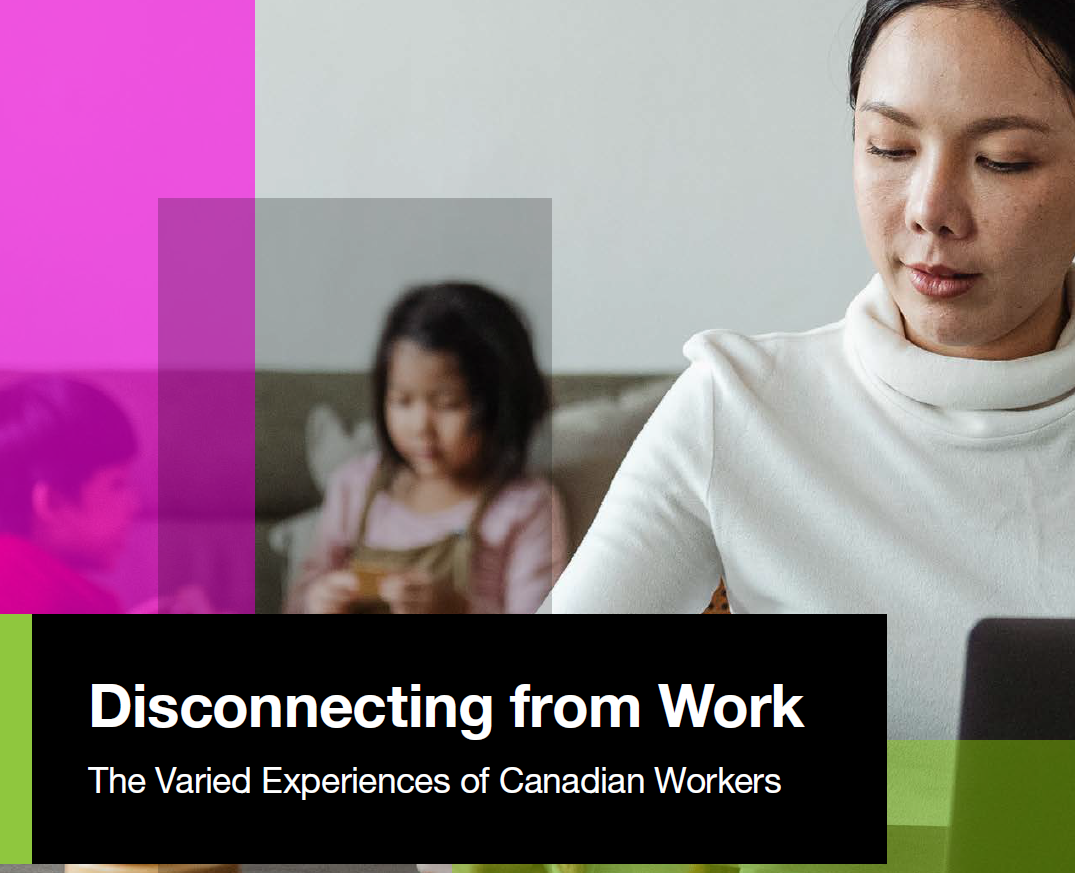August 29, 2022 | Andrew Parkin
Disconnecting from Work: The Varied Experiences of Canadian Workers

Disconnecting from Work: The Varied Experiences of Canadian Workers
The Survey on Employment and Skills confirms that many Canadians find it a challenge to keep their work, family and personal lives in balance. But experiences vary widely. Some workers, such as those who are self-employed, are more likely to appreciate the flexibility of modern work arrangements. In contrast, the survey’s findings related to professionals hint at the prospect of burnout among many of those workers on whom we rely to deliver key services to the public.The Survey on Employment and Skills is conducted by the Environics Institute for Survey Research, in partnership with the Future Skills Centre and the Diversity Institute at Ryerson University. The third wave of the study consists of a survey of 5,913 Canadians age 18 and over, conducted between June 1 and June 28, 2021, in all provinces and territories. It was conducted both online (in the provinces) and by telephone (in the territories).
Key findings
- Overall, only one in three employed Canadians say they can often find the right balance between their job, the work they do to care for their households, and the things they like to do for themselves.
- Older workers and self-employed workers are among those most likely to often find the right balance; professionals (such as teachers, nurses and therapists) are among the least likely to often do so.
- About one in three employed Canadians always or often continue to do work after their regular work day or shift is over. This proportion is higher among younger workers, especially among younger men.
- The most common reason why some workers do work after their regular work day or shift is over is that they enjoy their work and don’t mind putting in extra time.
- While enjoyment of their jobs is the most common reason given by workers in almost every type of occupation, there is one important exception: professionals. The most likely reason why professionals continue to do work is because they don’t have enough time to get everything done during their regular work day.
Read the report.
Lisez le rapport.
For more information, contact Andrew Parkin.
The Survey on Employment and Skills is funded primarily by the Government of Canada’s Future Skills Centre / Le sondage sur l’emploi et les compétences est financé principalement par le Centre des Compétences futures du gouvernement du Canada.
Le sondage sur l’emploi et les compétences est financé principalement par le Centre des Compétences futures du gouvernement du Canada / The Survey on Employment and Skills is funded primarily by the Government of Canada’s Future Skills Centre.
Disconnecting from Work: The Varied Experiences of Canadian Workers
Déconnexion du travail : Les expériences variées des travailleurs canadiens
Detailed data tables
Stay Informed
Like what you're reading? With our bi-monthly e-newsletter, you can receive even more with the latest details on current projects, news, and events at the institute.
Subscribe
Like what you're reading? With our bi-monthly e-newsletter, you can receive even more with the latest details on current projects, news, and events at the institute.
Subscribe